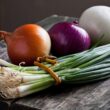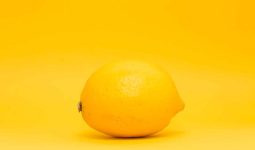Bilberry is one of the many medicinal plants on the planet. It goes by many names including Burren Myrtle, Arándano, Black Whortles, Myrtille, Airelle, Wineberry, Vaccinium myrtillus, Bleaberry, Trackleberry, Brimbelle, Hurtleberry, Dyeberry, Whortleberry, Gueule Noire, Huckleberry, Raisin des Bois, Mauret, and Blueberry.
Bilberry is a plant that has been used for many years in alternative medicine as it has been discovered to be useful and effective in the treatment of eye problems that are caused by high blood pressure or diabetes, circulation problems that are caused by chronic venous insufficiency.
Another thing that bilberry has been used for is to better night vision. Nonetheless, a few studies have revealed that bilberry may not be exactly potent or effective in curing this medical condition.
Other uses of bilberry that have not been proven with research have includes the following: osteoarthritis, treating menstrual pain, irritable bowel syndrome, glaucoma, diabetes, urinary problems, gout, chronic fatigue syndrome e.t.c.
There is no certainty that any medical condition can effectively be treated using bilberry. However, the use of this herb for medicinal purposes has also not been approved by the FDA.
Do not use bilberry as a replacement for any medication that has been prescribed for your use by a medical doctor.
It is possible that you find bilberry in stores being sold as a supplement. As a matter of fact, for many herbal supplements or compounds that make their way to the drug market, there are no regulated manufacturing standards to keep them harmless.
This is why some of them are contaminated with other drugs or toxic metals. If the risk of contamination must be minimised then health/herbal supplements have to be purchased from a very good pharmacy or a reliable source.
There is also the possibility of using bilberry for purposes that are not stated on the product guide.
Important Information
All instructions and directions written on the product’s label and package at to be carefully followed. Make sure that your Healthcare providers are aware of whatever allergies medical conditions and medicines that you use.
Before taking any bilberry medicine
Talk to a doctor, pharmacist, or other healthcare professional to be sure if it is safe for you to use a bilberry product. This consultation is most important if you have:
- Diabetes: (bilberry is capable of lowering your blood sugar).
- Pregnancy: It is not certain whether or not bilberry will cause harm an unborn child. Do not purchase or use this product without first seeking medical advice if you are pregnant.
- Nursing mothers: It is still unknown whether consumed bilberry passes into breast milk, or if it is harmful to a nursing baby. If you are breast-feeding, do not purchase or use this product without first seeking medical advice.
Do not attempt to give your child any herbal/health supplement without seeking medical advice.
How should I take bilberry supplements?
When it comes to using herbal supplements, people tend to self medicate. Do not consider using any herbal supplements without asking your doctor for advice. You may also want to consider talking to a practitioner who is trained or in the making and use of herbal/health supplements.
If you must use bilberry as a supplement, use it only as directed on the container or package. Better still, use as directed by your doctor, a pharmacist, or any medical practitioner. Avoid overdosing, do not consume more of the supplement than is recommended on the package.
Remember that bilberry is a fruit. Thus the use of this fruit, when eaten as it is, in normal amounts is not considered to be unsafe. As a matter of fact, it is delicious.
However, there is a possibility that bilberry can be unsafe if you consume it in high doses, or for an extended period of time.
Do not try out different forms ( liquid, tincture, tablets, teas, etc) of this plant at the same time. Talk to a doctor if you need to switch from one form to another. Using different formulations of bilberry together greatly increases the risk of an overdose.
Pay close attention to your body response and reach out to your doctor if the condition you are taking the bilberry medication for does not improve, or if the condition gets worse while you use this product.
If you have to undergo a surgery or you need a dental work, avoid taking bilberry in any form for at least 2 weeks ahead of the date.
Keep all medicine away from children, and store your bilberry supplements at room temperature, far away from heat and moisture.
What happens if I miss a dose of my bilberry?
It doesn’t matter, simply skip the dose you missed if it is almost time for the next scheduled dose. You don’t need to overdose by useing extra bilberry to make up the dose you have missed.
What happens if I overdose?
If you over dose, quickly seek emergency medical attention or place a call to the Poison Help line of your country
What should I avoid while taking bilberry?
It is best to avoid using bilberry completely if you must use other herbal/health supplements that you are aware is capable of lowering your blood sugar level.
These herbs includes horse chestnut, devil’s claw, psyllium, fenugreek, garlic, Siberian ginseng, guar gum, Panax ginseng, and others.
Avoid using bilberry at the same time with any other herbal/health supplements known to affect blood-clotting. These supplements include; capsicum, angelica (dong quai), ginkgo, clove, danshen, garlic, ginger, Panax ginseng, horse chestnut, turmeric, poplar, red clover, and willow.
Do not use bilberry supplement together with any other herbal/health supplements that may contain chromium, such as cascara, brewer’s yeast, and horsetail.
Bilberry side effects
See your doctor or use emergency medical help if you notice any signs of an allergic reaction: difficult breathing, hives, swelling of your face, tongue, lips, or throat.
Although all the possible side effects of bilberry are yet to be known, the plant and supplements are thought to be possibly safe when they are taken for a very short period of time.
What other drugs will affect bilberry?
If you are using any of the medications listed below, do not take bilberry without first seeking medical advice from your doctor:
Oral diabetes medicine or insulin, medicine used for the prevention of blood clots, such as dalteparin, clopidogrel (Plavix), heparin, enoxaparin, or warfarin(Coumadin, Jantoven).
While this list is not complete, please note that other drugs will likely interact with bilberry. These medications that may interact includes vitamins, prescription and over-the-counter medicines, as well as herbal products.
Note also that not all of the possible interactions of bilberry are clearly written here. Bilberry is a wonderful gift of nature, but as with all good things, too much can become a bad thing.
Use bilberry products with care, and enjoy the fruit in moderation.
Please leave a comment below.








